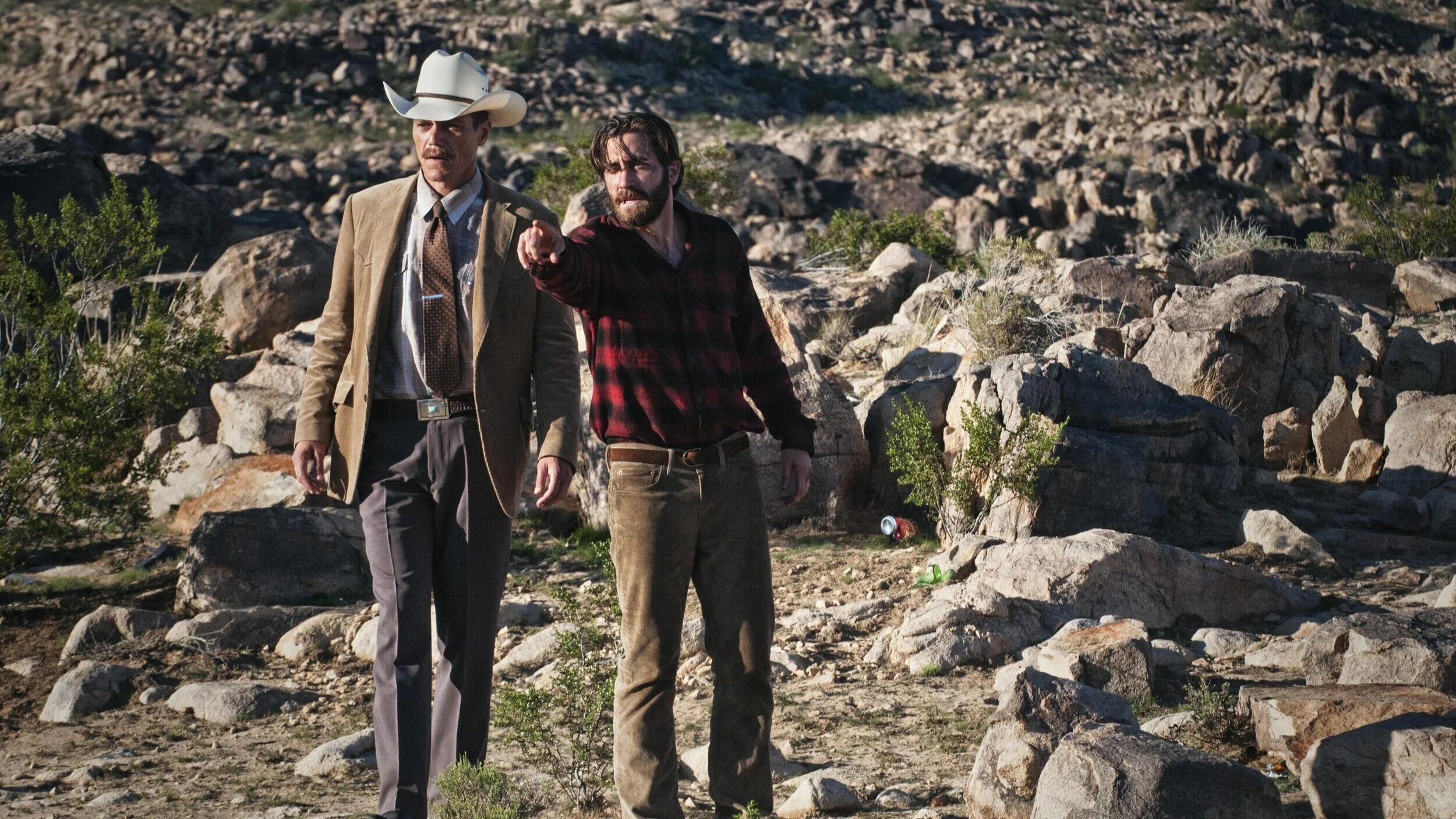Nocturnal Animals
With his reflections on art, literature, fiction, betrayal and memory, Tom Ford surpasses the promise he showed with his 2009 debut, A Single Man.
West Texas story: Michael Shannon and Jake Gyllenhaal
For a film unfolding in three parallel narratives – one set in the present, one in the past and one in the fictitious world of the eponymous manuscript – the editor has a lot to answer for. Tom Ford, the fashion designer who made his directorial debut with the award-winning A Single Man (2009), certainly knows the cut of a suit. Now he proves himself to be one of the most masterful storytellers of his generation. He certainly grabs our attention from the start with a flesh-rippling exhibition at a fashionable Los Angeles gallery managed by Susan Morrow (Amy Adams). The film then glides into the unknowable recesses of the human and the vulnerable within the shrink-wrapped, antiseptic and high-tech haven from harm that Susan calls home. At an after-show soirée, Michael Sheen tells her: “Enjoy the absurdity of our world. Believe me – our world is a lot less painful than the real one.” It’s an omen of sorts.
Susan’s past catches up with her when she receives a manuscript from her first husband, a man she hasn’t talked to for nineteen years. He is Edward Sheffield (Jake Gyllenhaal), a once aspiring writer upon whom she visited an unforgivable act. But now that he’s written his first novel, Nocturnal Animals, and has found a publisher, he’s dedicated it to Susan and wants her to read it. Gyllenhaal also plays Tony Hastings, his literary alter ego, a man with a wife and teenage daughter driving through West Texas at night. When his family’s vehicle is approached on the open highway by two cars intent on making trouble, it becomes all too apparent that Ford’s film is a story of two very different worlds: the safe, affluent and vacuous one inhabited by Susan and the dangerous, dirt-poor and red-bloodied one of Tony’s worst nightmare.
A masterstroke is in the casting of Isla Fisher as Gyllenhaal’s ‘fictitious’ wife, Laura. Ms Fisher, aka the real-life wife of Sacha Baron Cohen, has always borne an uncanny resemblance to Amy Adams and so sucks us into the parallel story with fluid conviction. Aaron Taylor-Johnson also makes a terrific impact as Tony Hastings’ redneck aggressor, Ray, recalling Nicolas Cage in his heyday. But Taylor-Johnson is an English actor (born in High Wycombe), who made his breakthrough playing the young John Lennon in Nowhere Boy – so his transformation is all the more staggering. As a sheriff with lung cancer and only months to live, Michael Shannon supplies another quirky reading of jaundiced justice, while Abel Korzeniowski’s exquisite score draws Tom Ford’s emotional motifs together with persuasive finesse.
And the third story – the flashback of Susan and Edward’s courtship and its jarring hiccoughs – takes on another hue entirely, while Amy Adams and Jake Gyllenhaal pass off as their younger selves with uncanny credibility. Indeed, Tom Ford refuses to allow a single false note to derail his potent mosaic and as the past meets up with the present – through the dynamic device of the literary window – the film exerts the impact of a shot of adrenalin to the heart.
JAMES CAMERON-WILSON
Cast: Amy Adams, Jake Gyllenhaal, Michael Shannon, Aaron Taylor-Johnson, Isla Fisher, Armie Hammer, Laura Linney, Andrea Riseborough, Michael Sheen, Ellie Bamber, Robert Aramayo, Karl Glusman, Jenna Malone, Zawe Ashton.
Dir Tom Ford, Pro Tom Ford and Robert Salerno, Screenplay Tom Ford, from the novel Tony and Susan by Austin Wright, Ph Seamus McGarvey, Pro Des Shane Valentino, Ed Joan Sobel, Music Abel Korzeniowski, Costumes Arianne Phillips.
Fade to Black Films-Universal Pictures.
116 mins. USA. 2016. Rel: 4 November 2016. Cert. 15.


